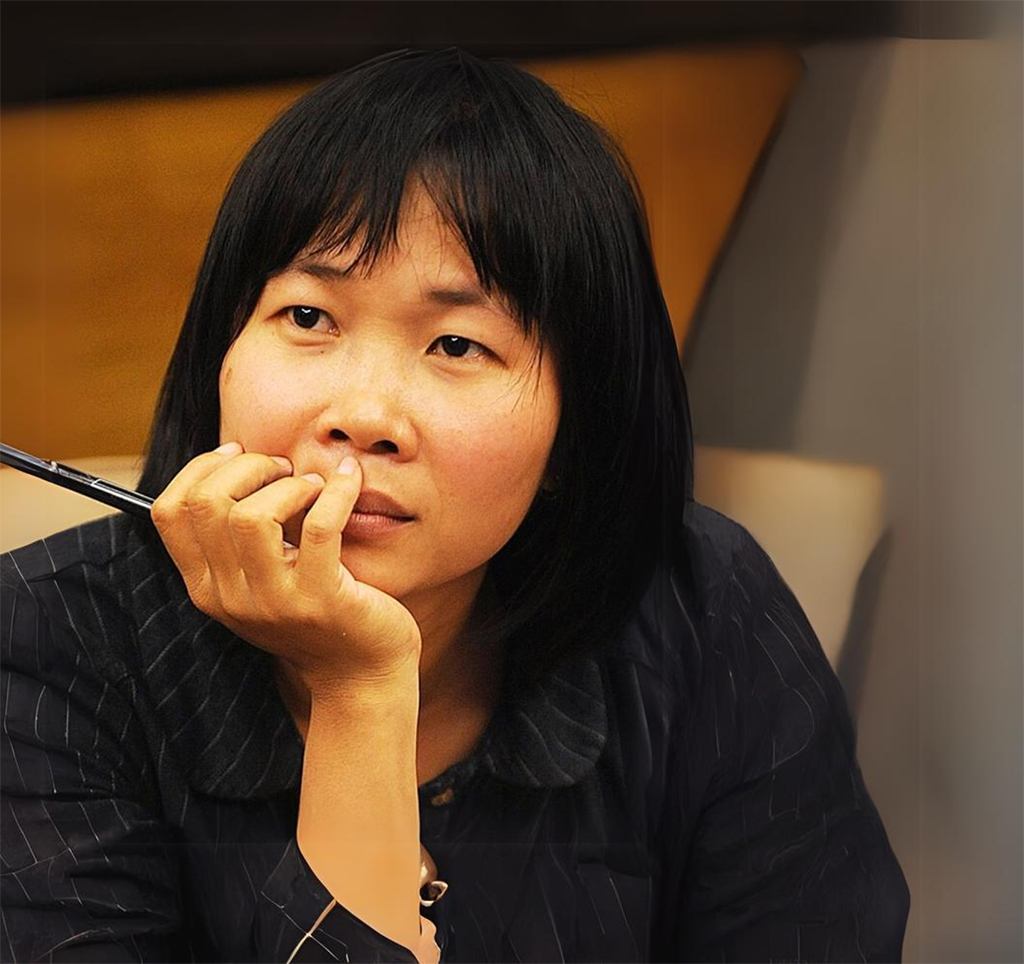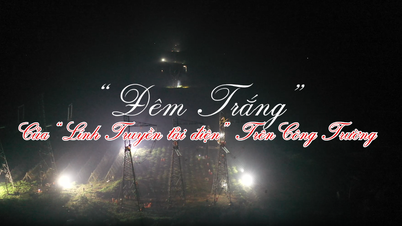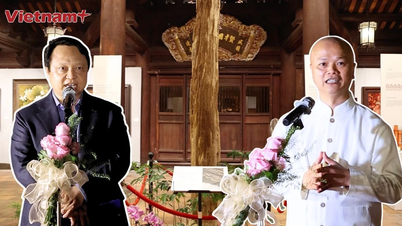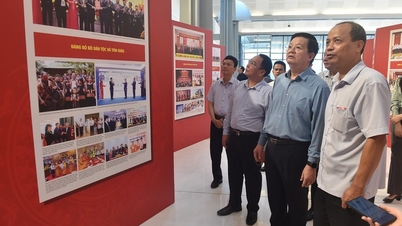Rules for all
In her novel Bieguni, the people who never stop moving , Polish writer Olga Tokarczuk, winner of the 2018 Nobel Prize for Literature, wrote about a fictional religion called Bieguni, a combination of the words bieg (to run) and ucieczka (to flee). These are people who conquer evil by moving. Accordingly, they are always moving even when standing still, because "the ruler of the world cannot control movement and he knows that in movement our bodies are sacred, only when moving can we escape from him. And he will rule over things that are immobile and paralyzed, rule over things that are passive and stagnant".

Writer Nguyen Ngoc Tu and the story collection "Drifting"

From there, she asked the question: What do people today have in common with the followers of Bieguni? And Troi by Nguyen Ngoc Tu is like the answer to that question. Familiar to readers through the people, stories and dialect of the southwestern region, but in the new work, with the openness of the human world, there is a Nguyen Ngoc Tu who has globalized, universalized his literature. The characters in this collection of stories come from many places, do all kinds of jobs and have their own destinies. However, in a certain moment of intersection, their fates cross each other and from there the story begins.
The drifting of a person can be microscopic shifts of introspection (a burp) or macroscopic (like history). It can also be invisible (like memory) or tangible (like water hyacinth). It can be explainable (geological separation) or inexplicable… Taking advantage of the special nature of the short story genre, Nguyen Ngoc Tu has brought diverse slices, thereby explaining the gathering and then separation of everything in this life. It can be seen that in this collection of stories, the author has paid close attention to the "intersection" points, so that it itself also drifts in accordance with the law.
For example, the three stories Dream of a person, Between here and there , By the door have continuity in terms of characters, making them go through a common story even though the content is completely independent. Or The beginning of the wind also contains the character Lut, who had appeared in the previous collection Fixing a cloud . These stepping stones create a space of continuity, and the further one goes, the more the connection will continuously open up.
Drifting can also be seen as the source of explanation for Nguyen Ngoc Tu's short stories. In his works, readers often see stories that are almost absurd or ridiculous. For example, in this collection of stories, there is a couple who were arrested for spilling pancakes on an airplane, for an unexpected reason ( Cold Fire in the Sky ). In addition, there is also a person who is almost unreal, when he can hear sounds at high frequencies, but is annoyed by sounds close to everyday life ( Distant Hunger )... Everything starts from that drifting, so that we understand that "No drifting is accidental, the drifting itself is a message, a signal, an invitation from the horizon".
Perception of reality
Many characters in this work contain their own movements. It is the energy generated from the movement of memory, when they themselves cannot resist the subconscious. For example, in Chlorophyll Rain , the character "memory repairman" cannot erase the image of his deceased mother from his grandchild no matter how hard he tries. Or in In the midst of this matter , although the man has never stepped out of the house in his entire life, the memories and the questions about his origins will always torment him, thereby forming an endogenous movement, causing him to also drift in the flow of time, in another space...
In addition to memories, bloodline inheritance is also something that makes people self-suggest. It also originates from infancy, from the materials that make us up, and then gradually becomes primitive, an instinct that is already there. That is the man who spent his whole life attached to a hammock, because when he was a fetus, his mother lay on it and rocked him ( Swinging in a cocoon ). Or in another story, it is the debt of three generations that is based only on a will ( Debt ). It can also be forged from the influence of life, so that all three men, more or less unrelated by blood, share a strange habit: "watching for a long time those who sleep deeply, I can see their dreams"...
From the above two things, it can be seen that even when we are physically still, there is still something within us that is always moving. But in the end, should we stand still (resoundingly) or follow the movements (even if we are far apart)? In his essay Sculpture and Nomads, inspired by his travels to Iran, Italian writer Italo Calvino pondered this issue when he came across a caravan of nomads and stone tablets appearing together.
He writes: “If I had to choose between two ways of existence, I would have to weigh their pros and cons for a long time: Either to live only to leave an indelible mark, to make myself a silhouette carved on a stone page, or to live by identifying with the cycle of the seasons, the growth of grass and bushes, with the rhythm of the years that cannot be stopped because it follows the rotation of the sun and the moon and the stars […] Either way, something holds me back: I cannot find a space to squeeze in and join this crowd. Only one thought makes me feel at ease: carpets.”
The most important thing, as Calvino said, is to understand what is present. Because we can never see the whole picture no matter how hard we try, and we ourselves will always be a small point in the drifting stream. At the end of the collection of stories with Towards Nowhere , Nguyen Ngoc Tu also affirmed: "Faith has just returned, reaffirming myself once again, definitely, there is no other way, I belong to nowhere". Understanding that, they will have the opportunity to look inside themselves. A collection of short stories marking a change in Nguyen Ngoc Tu's style, impressive and filled with spaces for reflection.
Nguyen Ngoc Tu was born in 1976, currently living and writing in Ca Mau . She is the author of many essays, prose, story collections, and novels such as The Unquenchable Light, Endless Field, Loving the Mountain Waiter, Nguyen Ngoc Tu's Essays, New Year's Eve, Lonely Wind and 9 Other Stories, River, Island, Measuring the Heart, No One Crosses the River, Cold Necks, Splendid Sky Smoke, Empty Luggage, Cold Smoke on Hands, Drifting.
Source link


![[Photo] Opening of the World Cultural Festival in Hanoi](https://vphoto.vietnam.vn/thumb/1200x675/vietnam/resource/IMAGE/2025/10/10/1760113426728_ndo_br_lehoi-khaimac-jpg.webp)


![[Photo] Ho Chi Minh City is brilliant with flags and flowers on the eve of the 1st Party Congress, term 2025-2030](https://vphoto.vietnam.vn/thumb/1200x675/vietnam/resource/IMAGE/2025/10/10/1760102923219_ndo_br_thiet-ke-chua-co-ten-43-png.webp)

![[Photo] General Secretary attends the parade to celebrate the 80th anniversary of the founding of the Korean Workers' Party](https://vphoto.vietnam.vn/thumb/1200x675/vietnam/resource/IMAGE/2025/10/11/1760150039564_vna-potal-tong-bi-thu-du-le-duyet-binh-ky-niem-80-nam-thanh-lap-dang-lao-dong-trieu-tien-8331994-jpg.webp)


























































































Comment (0)